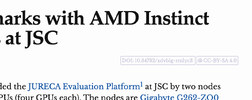
Diese Woche findet zum zwölften Mal die internationale Open Access Week statt. Seit 2010 bietet die Aktionswoche einen Rahmen für die Diskussion über den Stand und die Herausforderungen des offenen Zugangs zu wissenschaftlichen Erkenntnissen.

Diese Woche findet zum zwölften Mal die internationale Open Access Week statt. Seit 2010 bietet die Aktionswoche einen Rahmen für die Diskussion über den Stand und die Herausforderungen des offenen Zugangs zu wissenschaftlichen Erkenntnissen.
Summary This post is about the surprising uses I’ve noticed and the questionsabout the censo2017 R package, a tool foraccessing the Chilean census 2017 data, I’ve gotten since it was peer-reviewedthrough rOpenSci one year ago. The originalpost about thepackage one year ago didn’t cover the different examples I present here,including a Python port of the R package.

1 This blog is an experiment. We want to share bits and pieces of our work; the reports we write, the presentations we hold, or the little discoveries we make, or even some first, water-testing investigations; and all the rest. It’s a documentation of what we do. Little bits of science, collected in the open, and sometimes even not that little.

We’re happy to announce the 3rd edition of the Workshop on Open Citations and Open Scholarly Metadata (WOOC2022) , to be held online on 5 October 2022 (h. 15-18 CEST) . It has now been two years since the last edition of the Workshop on Open Citations and Open Scholarly Metadata (WOOC2020) took place as an online event.
This post was first published on QUERTY: musings from the rabbit hole, a blog by Silvio Peroni In the scholarly ecosystem, a bibliographic citation is a conceptual directional link from a citing entity to a cited entity, used to acknowledge or ascribe credit for the contribution made by the author(s) of the cited entity.

GigaByte Journal wins the ALPSP Innovation Award for their interactive articles and tools aimed at fulfilling the UNESCO Recommendation on Open Science We at GigaScience Press are very pleased to announce that our newest journal GigaByte has won the 2022 ALPSP Award for Innovation in Scholarly Publishing.
Lässt sich der Gedanke von offenen Lizenzen auch auf die Landwirtschaft übertragen? Die Initiative Open Source Seeds formuliert Lizenzbedingungen für Open-Source-Saatgut. Das soll die Vielfalt erhalten und Konzern-Monopole eindämmen – auf dem Acker genauso wie auf unseren Tellern. Die Landwirtschaft ist durchzogen von Patenten und Privatisierung.

Our lab is growing! In our Three Questions series, we’re profiling each of our members and the amazing work they’re doing. Today’s post features Natascha Chtena, a postdoctoral fellow and research coordinator for the Value of Openness, Inclusion, Communication, and Engagement for Science in a Post-Pandemic World (VOICES) project at the ScholCommLab.
Authors: Maaike Duine (ORCiD) and Franziska Harnisch (ORCiD) In March 2022, the 9th international Open Science conference of the Leibniz Research Alliance took place. Just like last year, the conference was online and preceded by the Open Science Barcamp. The conference and Barcamp topics revolved around multiple aspects of Open Science, from community building and public engagement, to FAIR research software and data mining.
In March, The Global Sustainability Coalition for Open Science Services (SCOSS) celebrated, together with the generous funders and the projects involved (including OpenCitations), the achievement of an amazing milestone: a total of 4 million Euros raised so far for supporting the growth and development of Open Science Infrastructures.